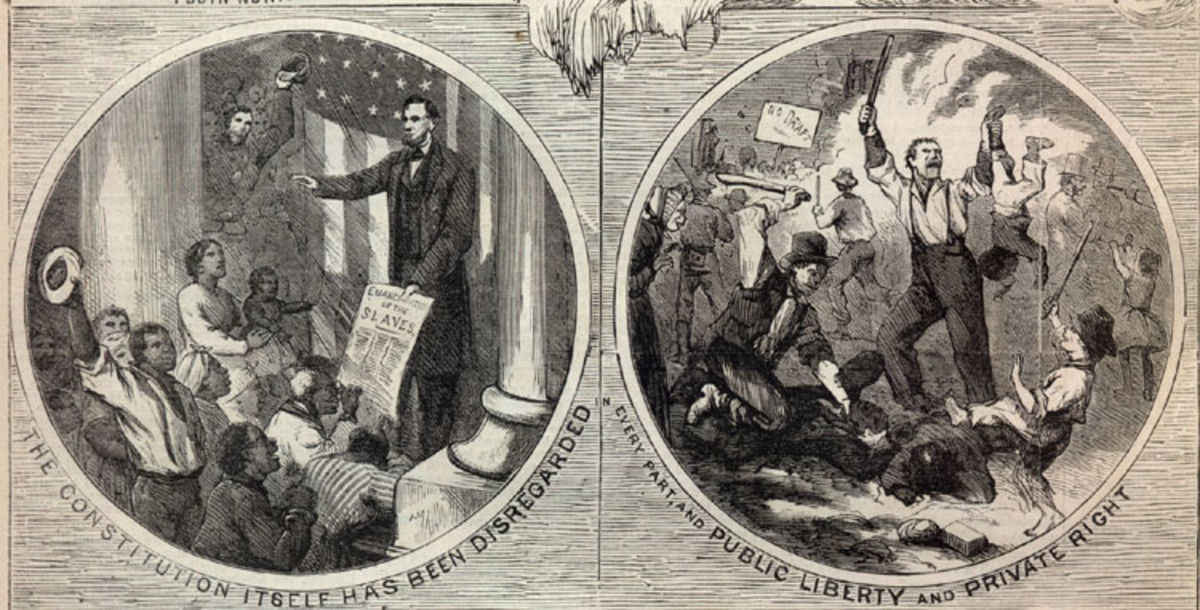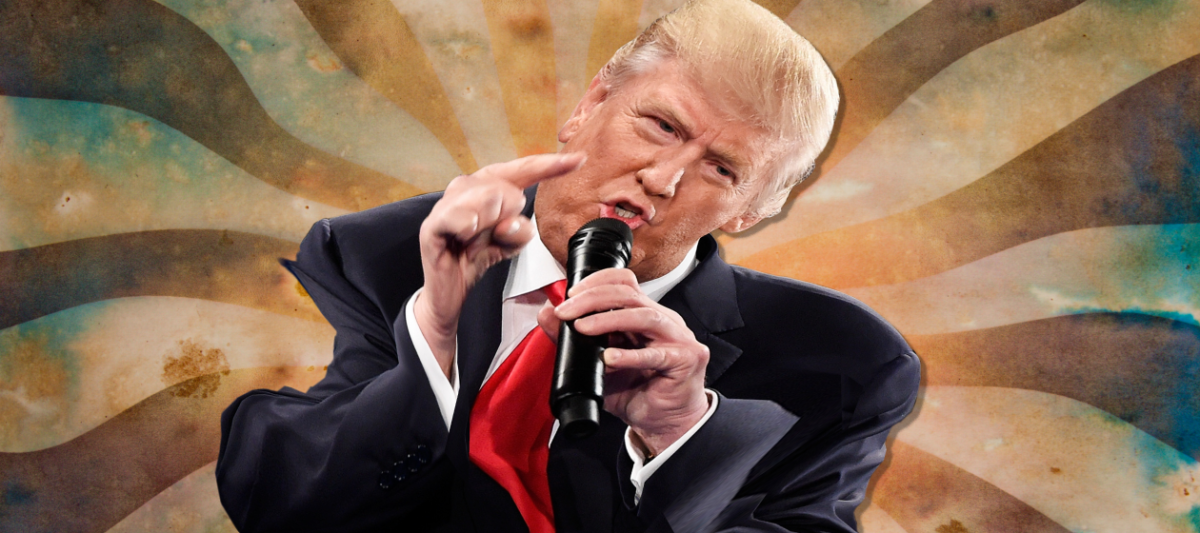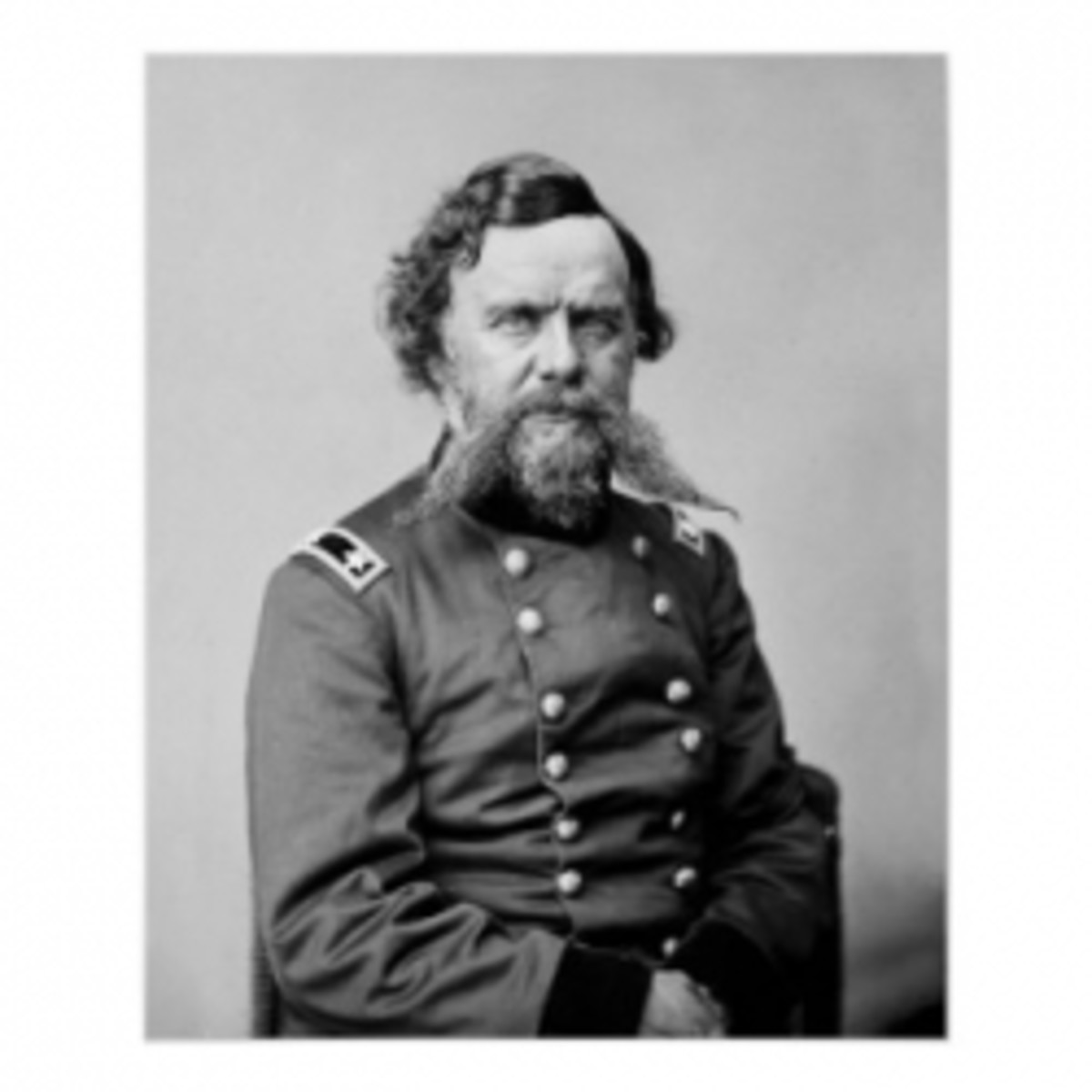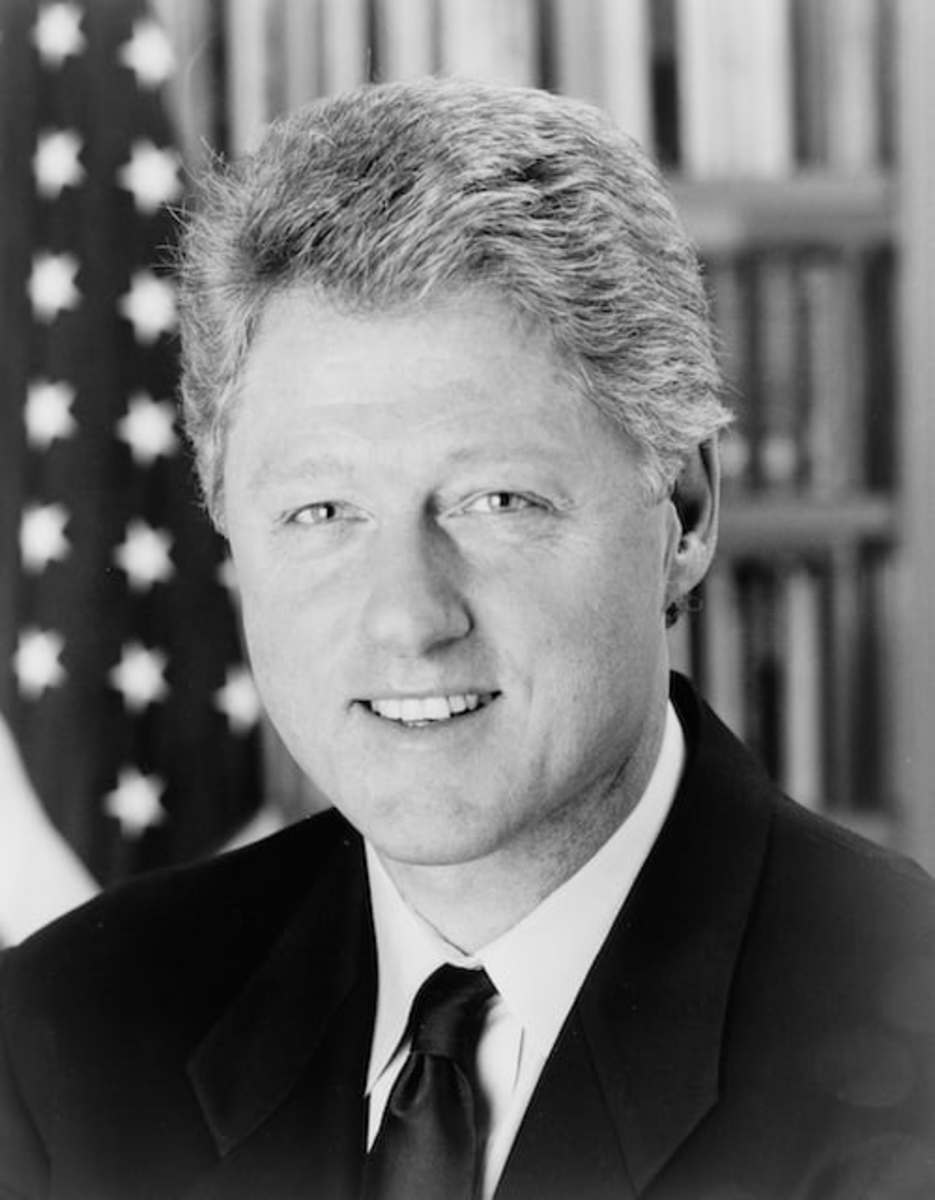Democratic Platform - Working for our Common Security
The Democratic Party Vision for Security
By JAMES F. HENRY
Bull Moose Magazine Publisher
Republicans like to pretend that they have all the answers when it comes to foreign policy and our common security. As this hub will clearly show, the Democratic Party has our own vision of how to make Americans more safe, and in doing so to strengthen our position in the world as a leader to be emulated, not a super power to be feared. This is the third in a series of 10 articles I am writing to draw attention to the top issues in the Democratic Party Platform, as approved at the Democratic Convention in Denver. As the title suggests, the theme of this hub concerns our collective security.
When President Bill Clinton spoke before the DNC, his speech was both accurate and eloquent. However, the line that impressed me, more than any other, summing up the philosophy Barack Obama will bring to the White House was, "Barack Obama knows that America cannot be strong abroad unless we are strong at home. People the world over have always been more impressed by the power of our example than by the example of our power."
It is clear that the world needs strong leadership in Washington, D.C. as the world's preeminent superpower. Without strong leadership in Washington, rogue states like Iran and North Korea are free to seek true weapons of mass destruction, not the fictitious ones George Bush wanted to believe were in Iraq. Without a vital United States military, with the backing of all our NATO allies, Russia will feel no incentive to keep from meddling in the affairs of sovereign nations such as Georgia.
Barack Obama understands that America's military is stretched far too thin in Iraq, and that has hampered our efforts to secure victory in Afghanistan. He understands that the Bush Administration erred in its assessment of the level of difficulty to maintain a lasting peace in Iraq after toppling the corrupt regime of Saddam Hussein. Barack Obama understands that in order to properly wage a war of this nature, serious diplomacy must be followed to engage all of our allies.
Working for our Common Security
To renew American leadership in the world, we will rebuild the alliances, partnerships, and institutions necessary to confront common threats and enhance common security. Needed reform of these alliances and institutions will not come by bullying other countries to ratify American demands. It will come when we convince other governments and peoples that they too have a stake in effective partnerships. It is only leadership if others join America in working toward our common security. Too often, in recent years, we have sent the opposite signal to our international partners. In the case of Europe, we dismissed European reservations about the wisdom and necessity of the Iraq war and their concerns about climate change. In Asia, we belittled South Korean efforts to improve relations with the North. In Latin America, from Mexico to Argentina, we failed to address concerns about immigration and equity and economic growth. In Africa, we have allowed genocide to persist for over five years in Darfur and have not done nearly enough to answer the United Nation's call for more support to stop the killing. Under Barack Obama, we will rebuild our ties to our allies in Europe and Asia and strengthen our partnerships throughout the Americas and Africa.
People who believe there is no difference between the major parties need only to look at this provision in the platform to know that the foreign policy errors of the last eight years will be over when Barack Obama is sworn in as President of the United States.
George Bush was hell-bent on going to Iraq, and as a result he did not have the patience to persuade our allies to join us in the cause. Unlike his father, when the first Gulf War was fought, President Bush went into this war believing that he could win without the support of key European allies.
Barack Obama will not make the same mistakes George Bush made. Barack Obama understands that diplomacy is a critical component to having a soud foreign policy. At the same time, he understands that for America to be secure, we must have a strong, well-equipped military, not a military that has parents holding fundraisers to provide body armor for their sons and daughters fighting in Afghanistan and Iraq can have a fighting chance of coming home alive.
Support Africa's Democratic Development
U.S. engagement with Africa should reflect its vital significance to the U.S. as well as its emerging role in the global economy. We recognize Africa's promise as a trade and investment partner and the importance of policies that can contribute to sustainable economic growth, job creation, and poverty alleviation. We are committed to bringing the full weight of American leadership to bear in unlocking the spirit of entrepreneurship and economic independence that is sweeping across markets of Africa.
We believe that sustainable economic growth and development will mitigate and even help to reverse such chronic and debilitating challenges as poverty, hunger, conflict, and HIV/AIDS. We are committed to bringing the full weight of American leadership to bear to work in partnership with Africa to confront these crises. We will work with the United Nations and Africa's regional organizations to prevent and resolve conflict and to build the capacity of Africa's weak and failing states. We must respond effectively when there is a humanitarian crisis–particularly at this moment in Sudan where genocide persists in Darfur and the Comprehensive Peace Agreement is threatened.
Many African countries have embraced democratization and economic liberalization. We will help strengthen Africa's democratic development and respect for human rights, while encouraging political and economic reforms that result in improved transparency and accountability. We will defend democracy and stand up for rule of law when it is under assault, such as in Zimbabwe.
So many places in the world have suffered incredibly over the past eight years because America has been consumed with waging wars in Iraq and Afghanistan. The plight of the people in Darfur will receive renewed attention from a Barack Obama Administration, and with that attention, increased focus from the news media. Under the Obama Adminitration, we will stengthen our relationships with developing economies, which will open new opportunities for trade of American goods.
Recommit to an Alliance of the Americas
We recognize that the security and prosperity of the United States is fundamentally tied to the future of the Americas. We believe that in the 21st Century, the U.S. must treat Latin America and the Caribbean as full partners, just as our neighbors to the south should reject the bombast of authoritarian bullies. Our relationship with Canada, our long-time ally, should be strengthened and enhanced. An alliance of the Americas will only succeed if it is founded on the bedrock of mutual respect and works to advance democracy, opportunity, and security from the bottom-up. We must turn the page on the arrogance in Washington and the anti-Americanism across the region that stands in the way of progress. We must work with close partners like Mexico, Brazil, and Colombia on issues like ending the drug trade, fighting poverty and inequality, and immigration. We must work with the Caribbean community to help restore stability and the rule of law to Haiti, to improve the lives of its people, and to strengthen its democracy. And we must build ties to the people of Cuba and help advance their liberty by allowing unlimited family visits and remittances to the island, while presenting the Cuban regime with a clear choice: if it takes significant steps toward democracy, beginning with the unconditional release of all political prisoners, we will be prepared to take steps to begin normalizing relations.
I think the key provision of this plank is the last one, regarding U.S. relations with Cuba. With Fidel Castro out of power, and a new style of leadership in Washington, the opportunity exists to develop a new relationship with Cuba. This will have untold benefits to Cuban immigrants who came to America escaping Castro's regime. If the United States and Cuba can engage in a productive relationship, the signal will be sent to all Central and South American nations that the United States is a partner that can be trusted. This will strengthen our sphere of influence in this region not by military power, but due to our willingness to work in partnerships to achieve common goals.
Lead in Asia
We are committed to U.S. engagement in Asia. This begins with maintaining strong relationships with allies like Japan, Australia, South Korea, Thailand, and the Philippines, and deepening our ties to vital democratic partners, like India, in order to create a stable and prosperous Asia. We must also forge a more effective framework in Asia that goes beyond bilateral agreements, occasional summits, and ad hoc diplomatic arrangements.
We need an open and inclusive infrastructure with the countries in Asia that can promote stability, prosperity, and human rights, and help confront transnational threats, from terrorist cells in the Philippines to avian flu in Indonesia. We will encourage China to play a responsible role as a growing power—to help lead in addressing the common problems of the 21st century. We are committed to a "One China" policy and the Taiwan Relations Act, and will continue to support a peaceful resolution of cross- Straits issues that is consistent with the wishes and best interests of the people of Taiwan. It's time to engage China on common interests like climate change, trade, and energy, even as we continue to encourage its shift to a more open society and a market-based economy, and promote greater respect for human rights, including freedom of speech, press, assembly, religion, uncensored use of the internet, and Chinese workers' right to freedom of association, as well as the rights of Tibetans.
Asia reflects perhaps the greatest challenge the American President will need to handle in the years to come. With one-fifth of the world's population, China will always be the preeminent power in the region. Far too often, U.S. relations with China have focused on the issues that separate us. It should be clear that in a Communist regime such as they have in China, change on the human rights front comes slowly. It will be necessary to have patience when it comes to China, and to work at issues in a methodical way, to accomplish change over an extended period of time, instead of expecting the Chinese to evolve over night.
Strengthen Transatlantic Relations
Europe remains America's indispensable partner. We support the historic project to build a strong European Union that can be an even stronger partner for the United States. NATO has made tremendous strides over the last fifteen years, transforming itself from a Cold War security structure into a partnership for peace. But today, NATO's challenge in Afghanistan has exposed a gap between its missions and its capabilities. To close this gap, we will invest more in NATO's mission in Afghanistan and use that investment to leverage our NATO allies to contribute more resources to collective security operations and to invest more in reconstruction and stabilization capabilities. As we promote democracy and accountability in Russia, we must work with the country in areas of common interest–above all, in making sure that nuclear weapons and materials are secure. We will insist that Russia abide by international law and respect the sovereignty and territorial integrity of its neighbors. We are committed to active Presidential leadership in the full implementation of the Irish Good Friday Agreement and St. Andrews Accords. We will seek to strengthen and broaden our strategic partnership with Turkey, end the division of Cyprus, and continue to support a close U.S. relationship with states that seek to strengthen their ties to NATO and the West, such as Georgia and Ukraine.
When I look back on my Western Civilization classes in high school and college, it is utterly amazing to me that the European nations have gelled into such a cohesive unit. Historically, even as recent as World War I and II, Europeans have not been able to get along. Despite that, over the past 20 years, Europe has taken great strides to unify into a confederated entity that works together, rather than for individual interests. Such a power has the potential to supplant the United States on many levels, particularly economics. It is critical, therefore, that we work to heal the wounds that have hurt us under the Bush Administration and move forward in a cooperative fashion under President Barack Obama.
Stand with Allies and Pursue Diplomacy in the Middle East
For more than three decades, Israelis, Palestinians, Arab leaders, and the rest of the world have looked to America to lead the effort to build the road to a secure and lasting peace. Our starting point must always be our special relationship with Israel, grounded in shared interests and shared values, and a clear, strong, fundamental commitment to the security of Israel, our strongest ally in the region and its only established democracy. That commitment, which requires us to ensure that Israel retains a qualitative edge for its national security and its right to self-defense, is all the more important as we contend with growing threats in the region–a strengthened Iran, a chaotic Iraq, the resurgence of Al Qaeda, the reinvigoration of Hamas and Hezbollah. We support the implementation of the memorandum of understanding that pledges $30 billion in assistance to Israel over the next decade to enhance and ensure its security.
It is in the best interests of all parties, including the United States, that we take an active role to help secure a lasting settlement of the Israeli-Palestinian conflict with a democratic, viable Palestinian state dedicated to living in peace and security side by side with the Jewish State of Israel. To do so, we must help Israel identify and strengthen those partners who are truly committed to peace, while isolating those who seek conflict and instability, and stand with Israel against those who seek its destruction. The United States and its Quartet partners should continue to isolate Hamas until it renounces terrorism, recognizes Israel's right to exist, and abides by past agreements. Sustained American leadership for peace and security will require patient efforts and the personal commitment of the President of the United States. The creation of a Palestinian state through final status negotiations, together with an international compensation mechanism, should resolve the issue of Palestinian refugees by allowing them to settle there, rather than in Israel. All understand that it is unrealistic to expect the outcome of final status negotiations to be a full and complete return to the armistice lines of 1949. Jerusalem is and will remain the capital of Israel. The parties have agreed that Jerusalem is a matter for final status negotiations. It should remain an undivided city accessible to people of all faiths.
Presidents from both parties have worked to improve relations between Middle East nations and our key ally in the region, Israel. It would be foolish to believe that change will come to that region over night, after thousands of years of enmity between the opposing sides. However, it seems plausible that a Palestinian state would go a long way toward accomplishing that objective. The United States will have to make a commitment to Israel to help protect it in the interim period, but so too will the Palestinian groups need to recognize that their goal of eliminating Israel is not feasible and not acceptable to the United States.
Deepen Ties with Emerging Powers
We also will pursue effective collaboration on pressing global issues among all the major powers–including such newly emerging ones as China, India, Russia, Brazil, Nigeria, and South Africa. With India, we will build on the close partnership developed over the past decade. As two of the world's great, multi-ethnic democracies, the U.S. and India are natural strategic allies, and we must work together to advance our common interests and to combat the common threats of the 21st Century. We believe it is in the United States' interest that all of these emerging powers and others assume a greater stake in promoting international peace and respect for human rights, including through their more constructive participation in key global institutions.
The United States has the means to assist emerging powers to grow in strength in a responsible manner, meeting with approval from the world community, instead of nations like North Korea trying to force themselves into the fray, without consideration of the consequences of their actions.
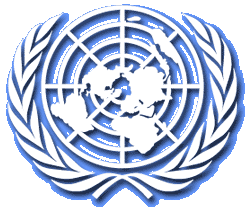
Revitalize Global Institutions
To enhance global cooperation on issues from weapons proliferation to climate change, we need stronger international institutions. We believe that the United Nations is indispensable but requires far-reaching reform. The U.N. Secretariat's management practices remain inadequate. Peacekeeping operations are overextended. The new U.N. Human Rights Council remains biased and ineffective. Yet none of these problems will be solved unless America rededicates itself to the organization and its mission. We support reforming key global institutions —such as the U.N. Security Council and the G-8—so they will be more reflective of 21st Century realities.
Under the Bush Administration, the United States has shown a high degree of contempt for international organizations like the U.N. Barack Obama understands that the United Nations can be an effective ally in solidifying world opinion on key international issues that will undoubtedly arise during his administration.
This concludes this third installment in the series on the Democratic Party Platform, and what it will mean to all Americans if Barack Obama is elected President. All view points are welcomed here, as long as people of different opinions do not resort to name calling or libel or slander.

